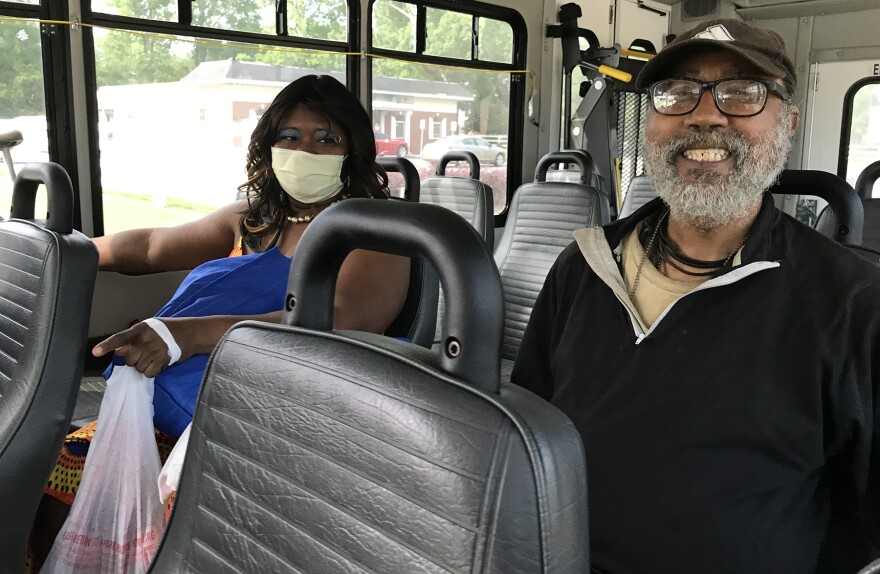Marlboro County is not among South Carolina’s healthiest. Data from 2019 by the Department of Health and Environmental Control shows Marlboro to be well above state averages for every chronic health condition and risk factor it measures, well below state averages for vaccinations and physical activity, and a contender for the county with the highest percentage of families living below the poverty level in South Carolina.
Marlboro is also one of the state’s most rural counties, and it has one of the highest black populations in the state.
Those two factors usually mean low access to healthcare – Marlboro also has one of South Carolina’s lowest rates of insured residents and no ICU beds – and an abundance serious life-threatening illnesses like heart disease, obesity, and hypertension; diseases that tend to run a lot higher in African-Americans.
On top of all this, Marlboro County is one of the most food-insecure places in South Carolina. According to Feeding America, roughly 17 percent of Marlboro County residents were considered food-insecure in 2018 – a number that vaults to almost 25 percent for the county’s children.
For agencies like the Northeast Rural Health Network (NHRN), based in Bennettsville, stats like these are somewhere between alarming and panic-inducing; and the agency often tackles such issues through nutrition and solid education surrounding food, because in addition to the existing health concerns the region contends with, many in Marlboro County lack good education and resources about what healthy food options might be possible .

“Food is a big issue here,” said NHRN Executive Director Patrick Bines. “It’s one of our barriers in our community.”
That statement was a major impetus behind building the Healthy Produce Bag Initiative, an innovatively simple nine-week program that places bags of fresh, mostly locally grown produce on three free-to-ride shuttle buses that serve Bennettsville.
The buses are part of the Pee Dee Regional Transit Authority and serve Bennettsville’s poorer residents daily.
“We thought this is a way to knock two things out,” Bines said. “You’re able to ensure that families have food on the table. But you’re also able to help these families improve their overall health by ensuring that they have access to healthy produce.”
Most of the food that finds its way into these bags comes from McArthur Farms, in Bennettsville. Owner

Rebecca McArthur says she sometimes partners with other farms in the state and around the South to provide produce that might not be in-season locally (or not locally grown). Part of the reason is to offer variety from week-to-week (the bags are placed on the buses on Thursdays) and another part is to have a chance to teach residents new things about fresh food.
“It’s brought an awareness of what is local,” McArthur said. “So that’s an educational tool that we can teach folks as well.”
The Healthy Produce Bag Initiative was funded by the Duke Endowment as a three-year, $150,000-per-year grant to identify health issues in the Marlboro/Dillon County area. The timing of the initiative turned out to be spot-on for dealing with the coronavirus outbreak. All those chronic illnesses that plague Marlboro County – DHEC data shows that Bennettsville is one of the most affected cities in South Carolina, with more positive cases of COVID-19 than almost every other rural zip code (29512) in the state – are the ones the virus tends to exploit. So in trying to curb illnesses like stroke risk and high blood pressure, Bines said, the initiative ended up being a valuable resource for a vulnerable community.

On Thursdays, PDRTA shuttle riders can grab a bag of food, no questions asked, to take home with them. Rider Cynthia said she’s deeply grateful for the produce, which helps her nutritionally and financially.
“It helps me a lot to not have to buy extra food,” she said. “It helps a lot of people.”
Scott Morgan is the Upstate Multimedia Reporter for South Carolina Public Radio. Follow Scott on Twitter @ByScottMorgan.



